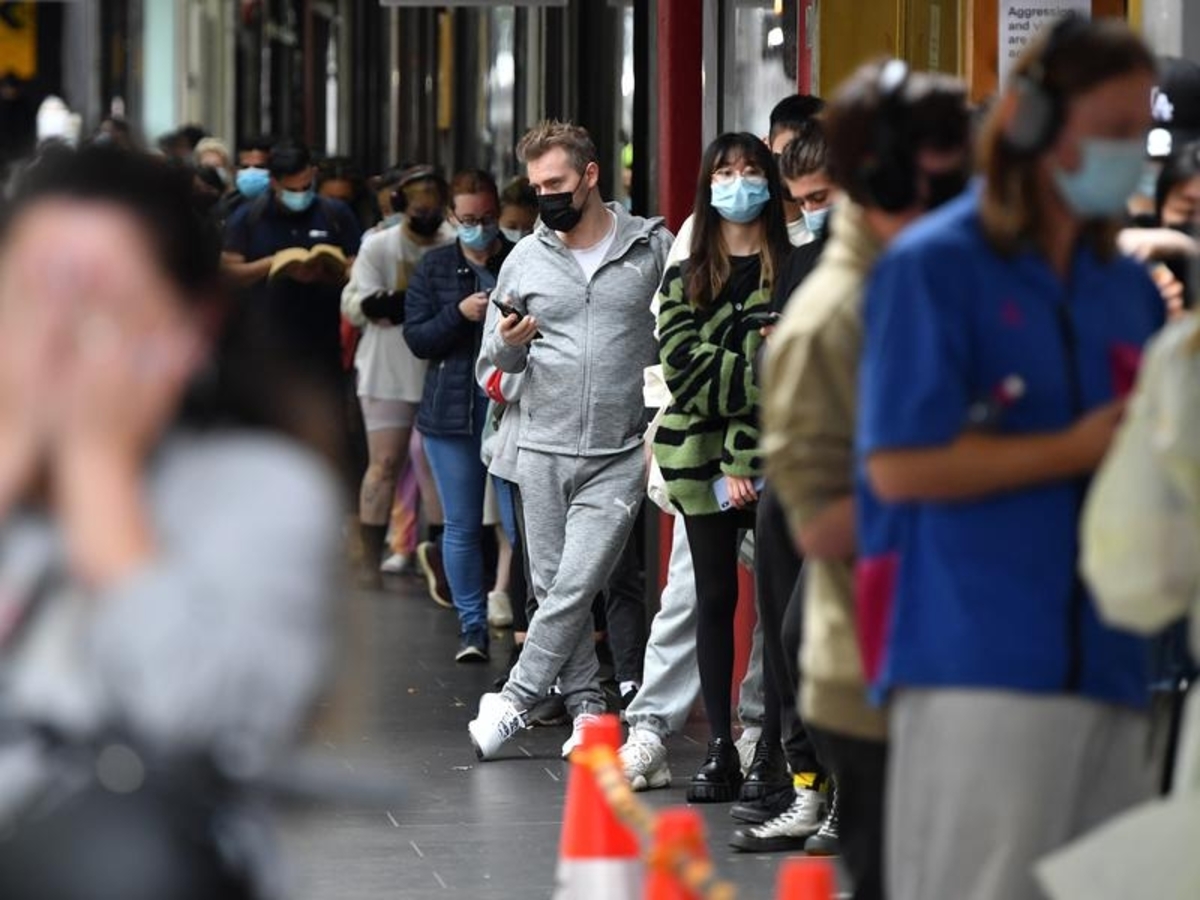
Victoria's dwindling Omicron wave has eased pressure on its once-overrun PCR testing system, with daily COVID-19 cases dropping to an almost five-week low.
The state posted another 41 virus-related deaths and 7810 new cases on Saturday, its lowest daily figure since January 2 when 7172 infections were reported.
Of the new cases, 5099 were from positive rapid antigen tests and 2711 from positive PCR tests from a total of 22,096 processed in the 24-hour window.
Kate Matson, a deputy secretary of Victoria's health department, said there had been a "significant improvement" in recent test turnaround times.
Tens of thousands of PCR tests were deemed invalid in January after pathology clinics were overwhelmed and could not process them within seven days.
Ms Matson said 97.4 per cent of PCR test results were now being returned to people within 24 hours.
Wait times to get a PCR test also blew out to multiple hours in January at many Melbourne sites, with staff forced to suspend testing.
But with less COVID-19 spreading in the community, Ms Matson said it was currently taking an average of five minutes for Victorians to get a PCR test across the network.
Those still struggling to get their hands on a rapid antigen test should join the queue for a "gold standard" PCR test, she recommended.
It comes as COVID-19 hospitalisations continue to trend downwards in the state, falling another 20 to 687 on Saturday.
In response, the Victorian government is allowing private hospitals and day centres to restart non-urgent elective surgery at 50 per cent of normal levels from Monday.
Ms Matson expects hospitalisations to keep falling but cases to either increase slightly or stabilise, due to increased movement.
"Melbourne is certainly a more buzzing place than it was a couple of months ago," she said, adding the proportion of infections among Victorians 19 and under had risen since students returned to classrooms this week.
In a bid to fast-track the city's recovery, the state opposition has renewed its call for the Andrews government to abandon mandatory masks in offices and scrap a recommendation for people to work from home when possible.
"If we can have people at the tennis and we can have kids back at school, we need to have workers back in offices," small business spokesman David Southwick said.
Ms Matson said she understood office workers did not want to wear masks up to 10 hours a day but flagged they're here to stay.
"I don't see masks going anywhere anytime soon. It's one of the most effective and easiest mitigations we have against the spread of COVID," she said.







